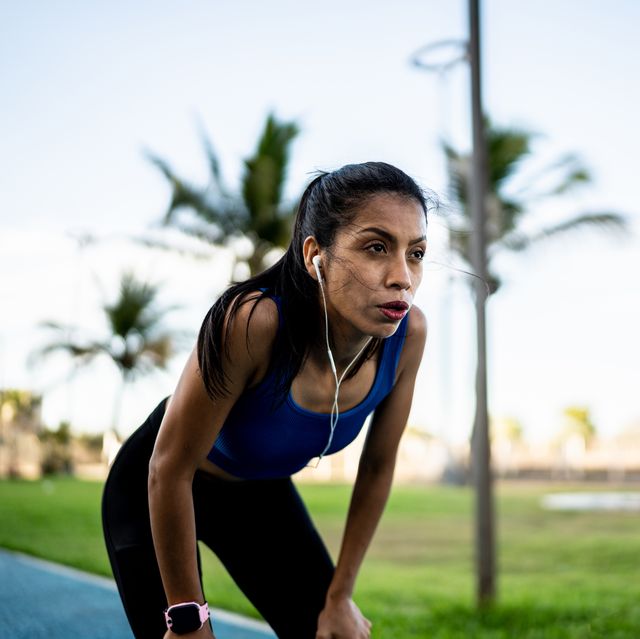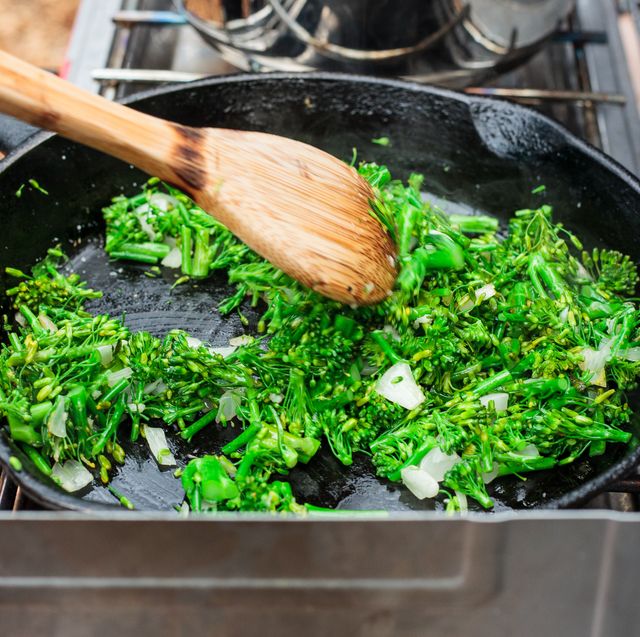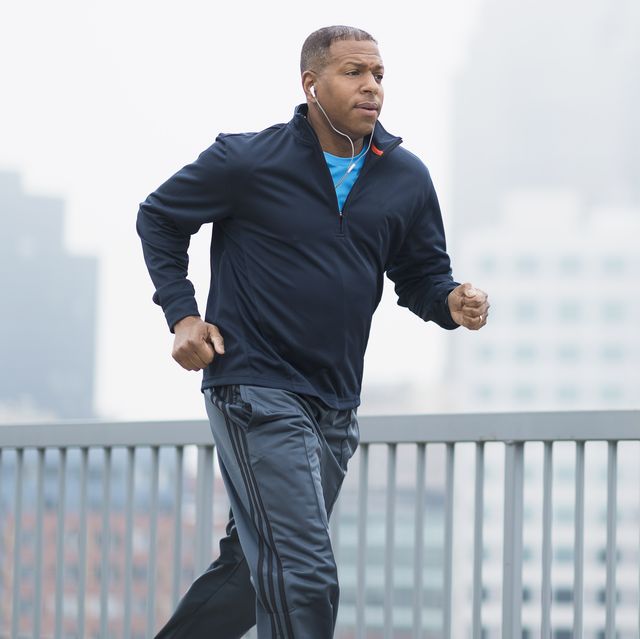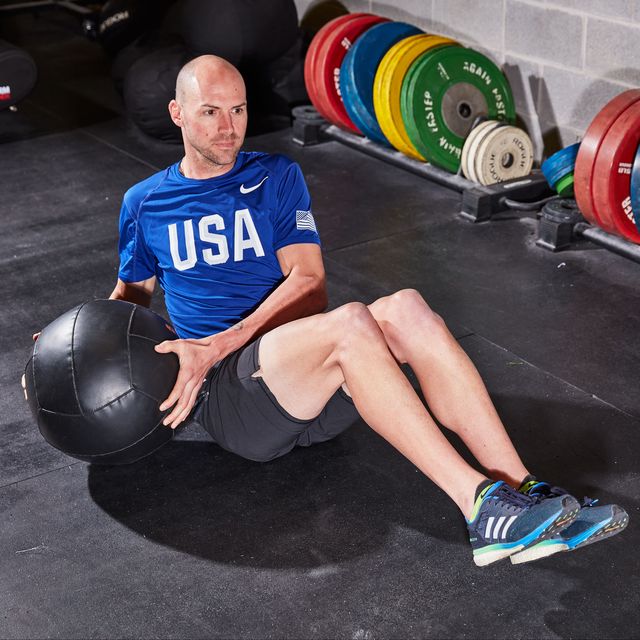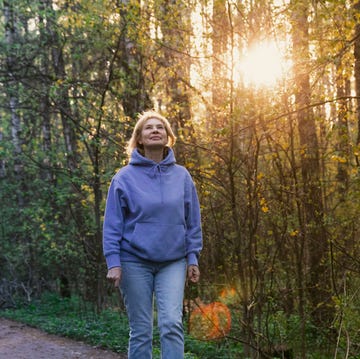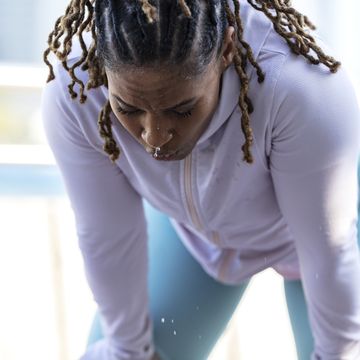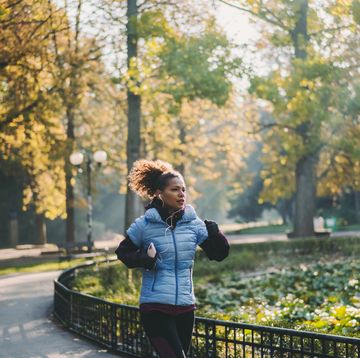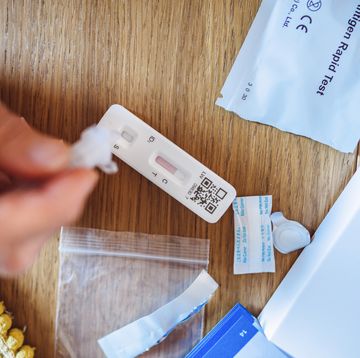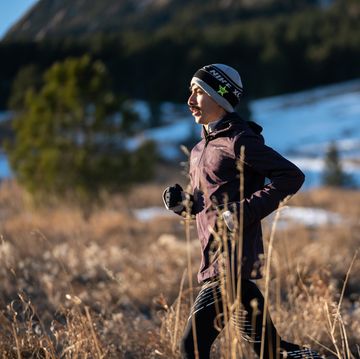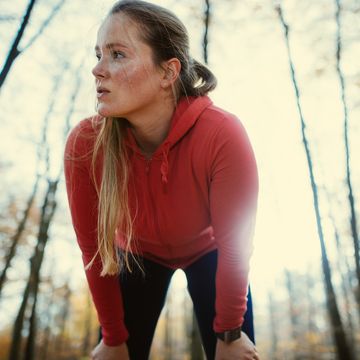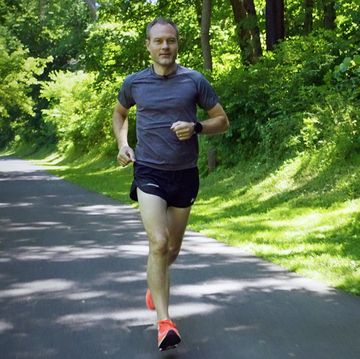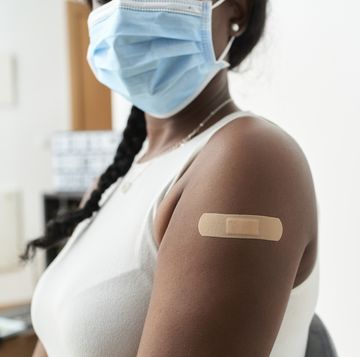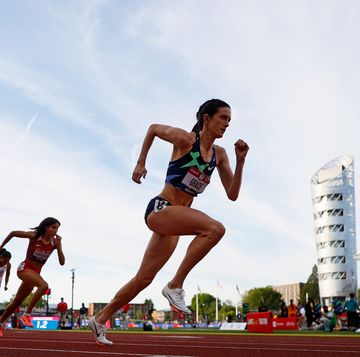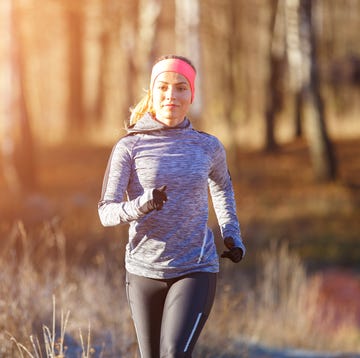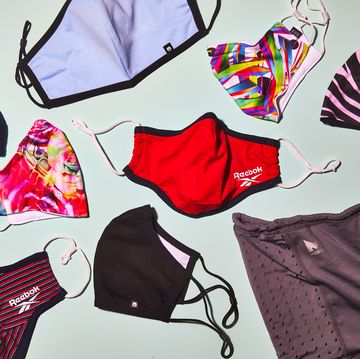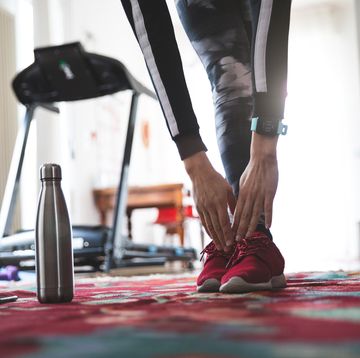- New research points out that COVID can have a physiological affect on the body that makes exercise feel difficult even when you’re over the virus.
- Researchers point out the importance of returning to running gradually after COVID.
The connection between COVID and reduced exercise capacity has been well established at this point, but researchers still don’t have all the answers on why this happens. But recently, scientists took a step toward more insight: A new study in the journal ERJ Open Research suggests that COVID affects the way oxygen is delivered to the body’s tissues, in a way that may lead to limitations in lung and heart function during activity.
In the study, 55 participants were evaluated for post-COVID exercise intolerance, including 41 who showed no evidence of heart or lung limitations. Yet all had reported reduced exercise capacity since having the virus.
What was particularly notable is that pulmonary and cardiovascular function showed up as normal on standard tests such as CT scans, echocardiograms, and cardio stress tests, said lead author Peter Kahn, M.D., M.P.H., pulmonary and critical care fellow at Yale School of Medicine.
“We found the heart was pumping oxygenated blood and the lungs were providing adequate amounts of oxygen, so these participants showed no evidence of limitations on initial tests,” he told Runner’s World.
It was only when they underwent additional screening through an iCPET—an invasive cardiopulmonary exercise test, where catheters are inserted into the pulmonary artery (which carries blood from the heart to the lungs)—that researchers found deficiencies in the way oxygen was being delivered throughout the body.
“This is helpful, because the prevailing belief has been that exercise intolerance after COVID is tied to deconditioning,” said Kahn. “Our findings contradict that hypothesis and show there’s a clear physiological reason instead.”
These findings are in line with previous research that’s looked at why COVID in particular might affect exercise capacity, rather than just having a virus in general.
For example, a 2022 research review in JAMA Network Open covering nine studies on COVID’s effects found that those who have lingering symptoms after an initial bout of the virus showed faster muscle fatigue compared to those without post-COVID symptoms.
According to first author of that study, Matt Durstenfeld, M.D., cardiologist and clinical researcher at the University of California San Francisco Department of Medicine, the culprit also turned out to be reduced oxygen delivery to the muscles, he told Runner’s World.
Adding to that, participants with reduced exercise capacity had changes in the autonomic system—basically, their “fight or flight” responses don’t reset properly, which can lead to emotional and physical fatigue.
“What we don’t know yet is whether these effects are long-term or even permanent,” he said. “Some studies are showing a minor rate of improvement over time, but others show none, even after a year past the virus.”
That can be disheartening for those trying to get back into an exercise routine, he said, but it doesn’t mean ditching exercise completely. Instead, those with long COVID or who are struggling with recovery from a bout with the virus need to focus on more modest progression, he suggested.
“Pushing yourself harder in the belief that it will help you condition yourself faster can sabotage your progress,” said Durstenfeld. For now, the advice is to build exercise capacity slowly by increasing variables like mileage, frequency, or speed very gradually over a long duration, as your body continues to readjust to life after COVID.
Elizabeth Millard is a freelance writer focusing on health, wellness, fitness, and food.
